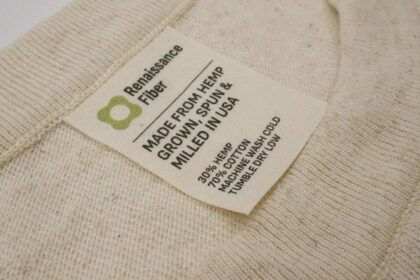A significant portion of Cambodia’s garment industry is grappling with operational uncertainty as fresh data reveals the sector’s vulnerability to global economic shifts, particularly the recent tariff announcement by the United States.
According to a joint survey conducted by Better Factories Cambodia (BFC), the International Labour Organization (ILO), and the International Finance Corporation (IFC), 15% of garment factories in Cambodia currently have no confirmed export orders or only have orders for the next few weeks. Even more concerning, nearly 50% of factories are unsure if they can continue operating beyond the next three months.
While 55% of factories have orders confirmed for up to six months, and 30% for more than six months, a substantial number remain exposed to short-term market volatility. This vulnerability is linked to economic uncertainties triggered by the April 2 announcement of reciprocal tariffs by US President Donald Trump, targeting imports from Cambodia—significantly impacting the country’s garment, footwear, and travel goods exports.
Read More: Klüber Lubrication and Groz-Beckert Collaborate to Drive Innovation in Knitting Oil Performance
The Q1 2025 production trend shows a mixed year-on-year (YoY) performance, with 42% of factories reporting stable output, 26% reporting an increase, and 22% experiencing a decline.
In terms of sustainability, 44% of factories can continue operating at current capacity for at least three months, based on existing orders and raw material supplies. However, 40% expect to last only one to three months, and 8% can operate for less than one month under current conditions—underscoring the fragile state of the sector.
Buyer confidence is also eroding. Over 20% of factories reported cancelled orders by at least one buyer in Q1 2025. Of these, 12% lost a single buyer, while 10% lost multiple buyers. Additionally, 27% of factories reported buyer requests for discounts on new orders this year, pointing to increasing pressure on suppliers to absorb additional costs in light of rising tariffs.
Read More: Milano Unica Opens with 1,000+ Exhibitors
In response to these challenges, many factories are actively seeking to diversify their customer base, with 26% already securing new buyers or opportunities, the report highlights.
The survey underscores the urgent need for resilience strategies and policy dialogue to safeguard Cambodia’s apparel export sector, which remains a cornerstone of its economy and a key employer in the region.






